Amy Packwood
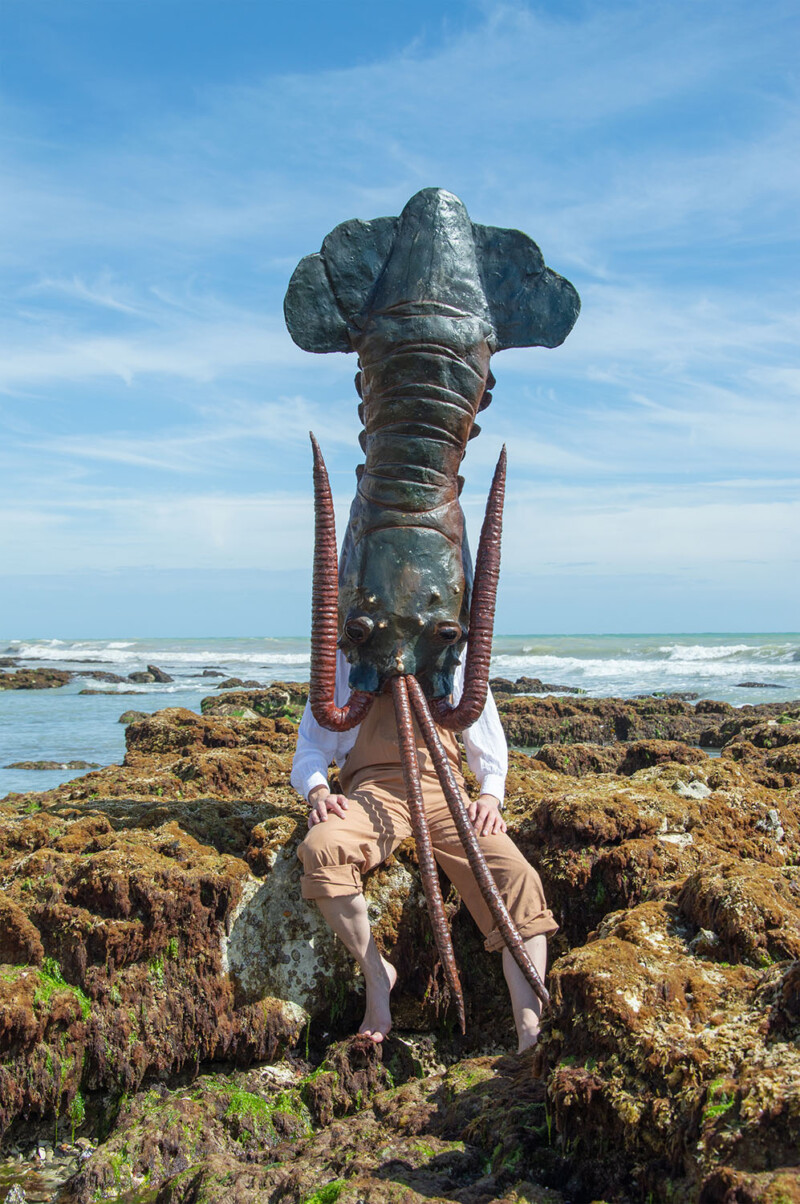
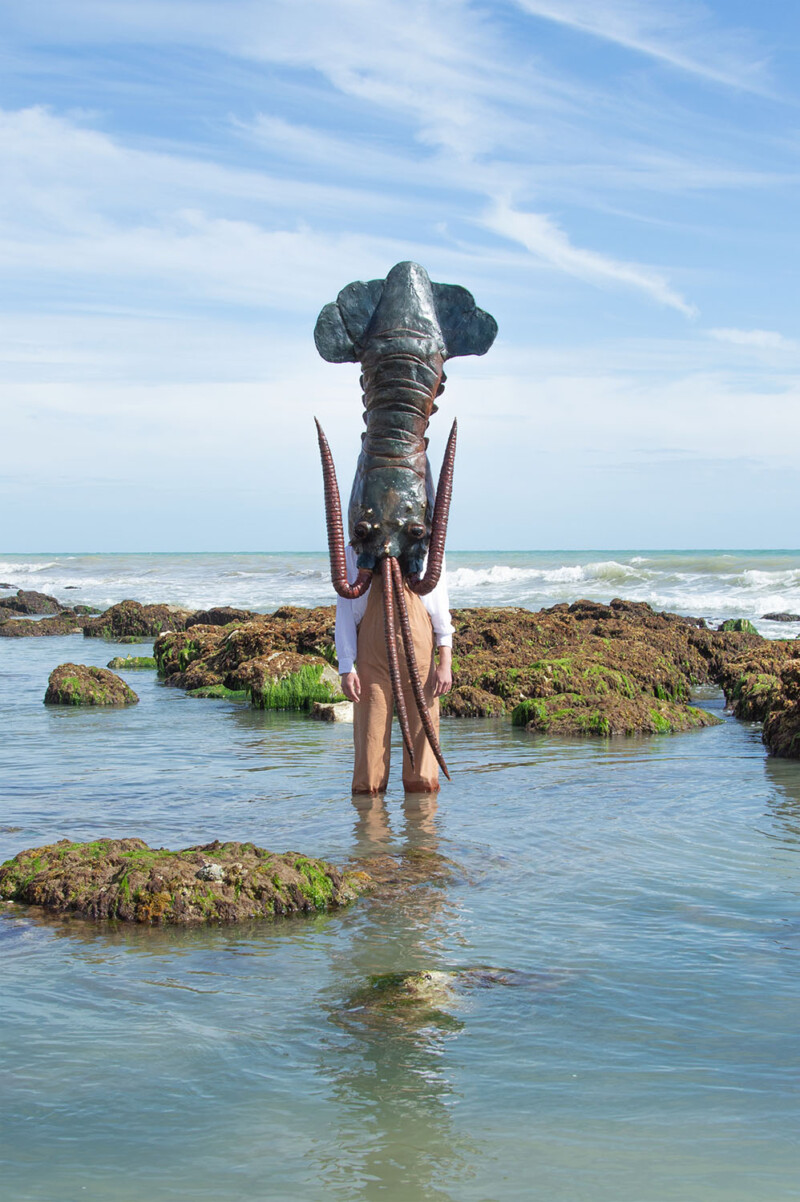
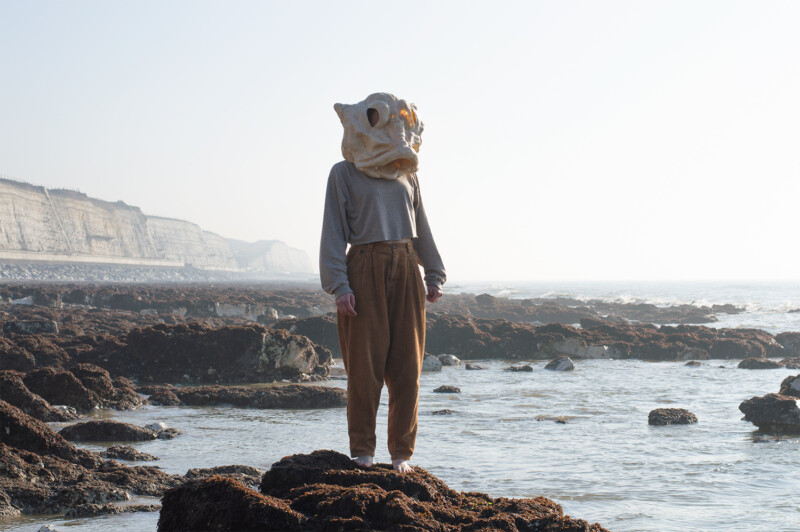
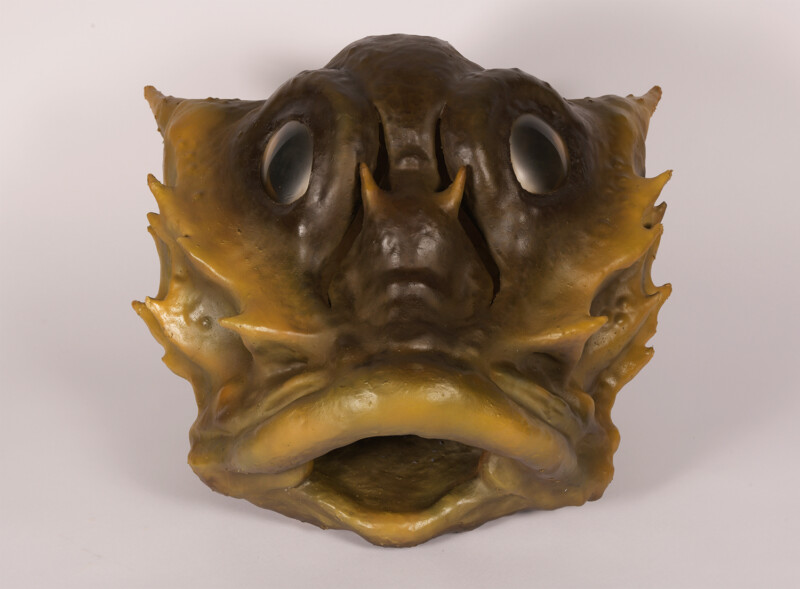
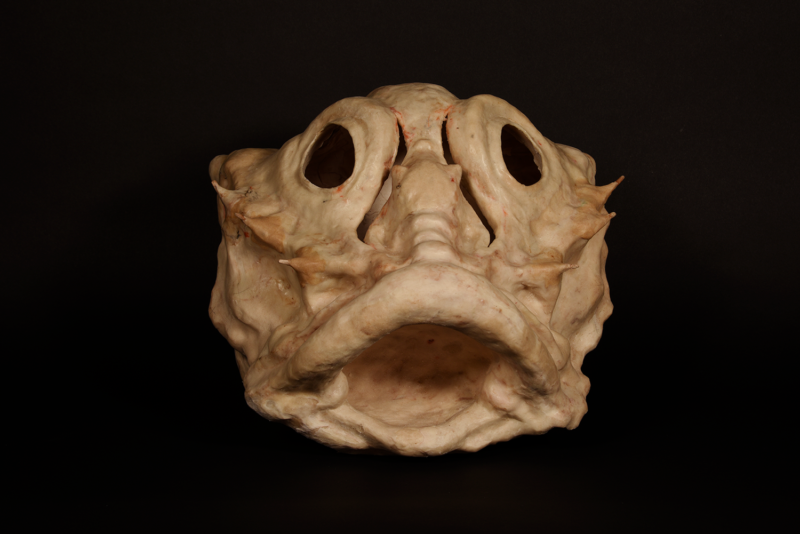
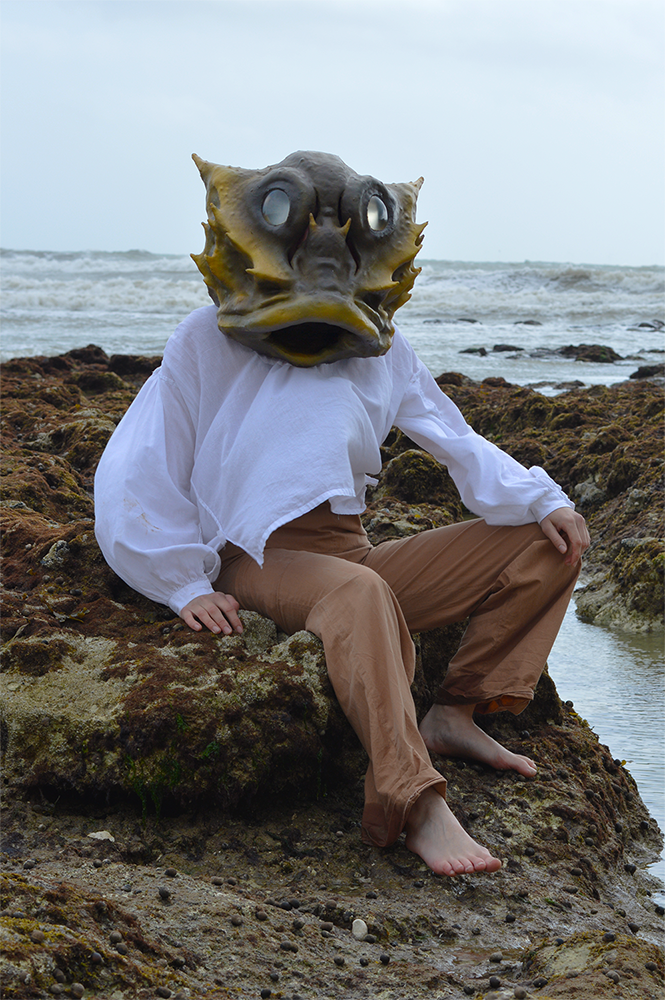
Within British mythology/tradition, a tacit belief in spirits or supernatural beings formed a secondary imagined world existant within our own, which could be connected with through practices of folklore. My own experience of folklore has often felt formal and fixed – historical study rather than organic connection with the world around me. When I was much younger I would walk through woods with my father and we would discuss what kind of trolls or goblins lived in which holes or trees. The idea of generating ‘personal folktales’ is central to my current work as a mask maker and forms the process I describe as ‘rewilding the folktale’. I want my work to allow people to use storytelling as an important mode of interaction with the world around us. The creatures found in folktale can often serve as a physical embodiment of a landscape, allowing for engagement with a natural world it is easy to feel disconnected from in the 21st century. For this project I have used the rock pools near Rottingdean to create and explore ‘the land of the low tide god’ – my own fictional feudal society governed by a minor deity. The ‘God of the Low Tides’ takes the form of a lobster and creates his own followers from the detritus of the tideline. He is guarded and given counsel by a long spined sea scorpion, trapped in his rockpool kingdom.
Alongside studying for my Masters degree I have been working freelance in the prop design industry. I often feel very conflicted about working in a job I love, but generating a significant amount of non-biodegradable and environmentally damaging waste in the process. In my first year of study I created a lobster mask using primarily non-biodegradable materials including resin, fibreglass and expanding foam. Whilst my work interacts on a metaphorical level with the rock pools at Rottingdean it must also consider its potential real-world impact on this environment and continuing to create in such an environmentally damaging way began to feel disingenuous. In my second year I aimed to create a comparably light and realistic mask whilst exploring viable alternatives to more widely used materials I had become familiar with. It is possible that any micrpolastics, non-biodegradeable waste or harmful chemicals used as part of a making process could eventually pollute the shorelines of my local area. Consequently, the mask tells a material story in which both the potential victim and perpetrator are embodied within the same object. The Long Spined Sea Scorpion is made almost entirely from handmade biodegradable thermoplastic ‘dough’, a material first used by @DLShadowwolf on YouTube. The dough is made half from biodegradable polyester granules and half from ordinary baking flour; it is zero waste when used carefully. Any excess or offcuts, including the dust from the sanding process, can be reheated and reformed into useable sheets.
Contact Amy Packwood
- Phone
- +447450901420
- packwoodaj@gmail.com
- @amyjpackwood